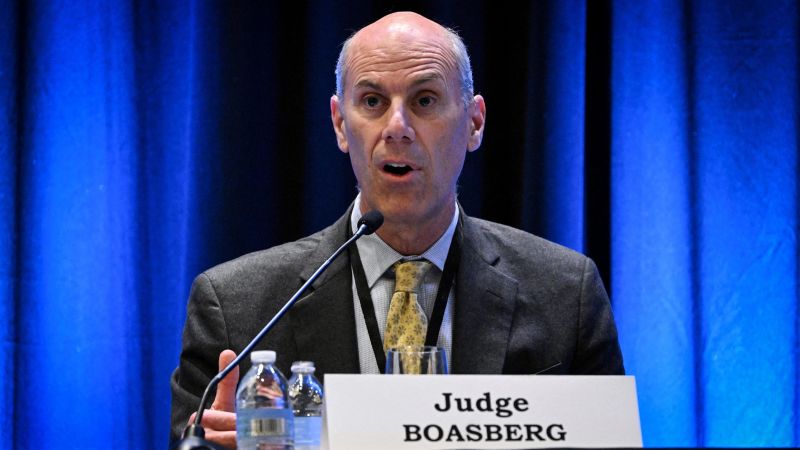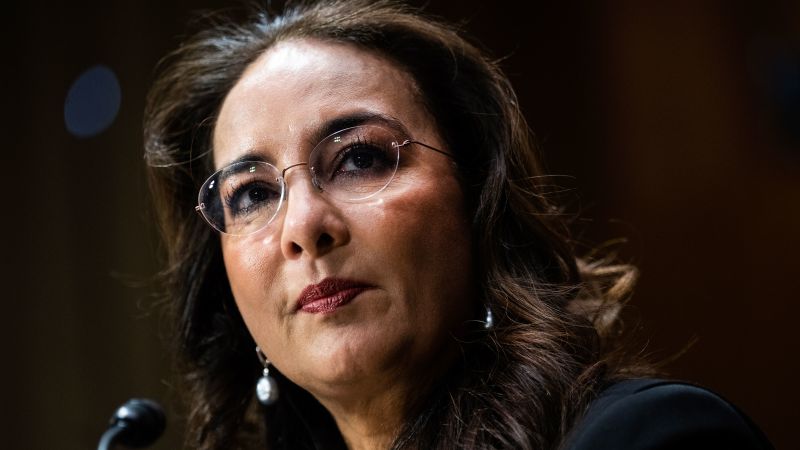Wall Street's Power Broker Navigates Volatile Markets and Political Minefields
Politics
2025-04-01 11:00:36Content

When Larry Fink's annual letter hits Wall Street, it's more than just correspondence—it's a moment of industry-wide anticipation. As the CEO of BlackRock, the global investment titan, Fink's shareholder memo has become something of a financial oracle, setting trends and sparking conversations across the investment landscape.
Take his 2018 letter, for instance, which played a pivotal role in propelling ESG (Environmental, Social, and Governance) investing into the mainstream. This groundbreaking missive helped transform socially conscious investing from a niche concept to a serious strategic approach. Ironically, Fink would later distance himself from the ESG terminology amid growing political pushback, particularly from Republican circles.
Each year, financial leaders and investors eagerly dissect Fink's words, searching for insights that could signal emerging investment trends and corporate priorities. His letters have become more than just communication—they're a barometer of global economic thinking and corporate responsibility.
Wall Street's Annual Ritual: Decoding the Influential Memo That Shapes Global Investment Strategies
In the high-stakes world of global finance, few communications carry as much weight and anticipation as the annual shareholder letter penned by influential business leaders. These missives are more than mere corporate correspondence; they are strategic roadmaps that can reshape investment landscapes, trigger market movements, and signal emerging trends that reverberate across global economic ecosystems.Unveiling the Power of Corporate Communication in Modern Finance
The Anatomy of Influential Corporate Messaging
The annual shareholder letter represents a unique intersection of corporate strategy, market insight, and strategic communication. Unlike traditional financial reports, these documents transcend numerical analysis, offering nuanced perspectives on broader economic trends, technological disruptions, and societal shifts that impact investment philosophies. Leaders like Larry Fink have transformed these communications into powerful platforms for articulating visionary perspectives. By strategically framing complex economic narratives, they can influence institutional investors, shape public discourse, and potentially redirect billions in investment capital through carefully crafted messaging.Navigating the Evolving Landscape of Responsible Investing
The emergence of Environmental, Social, and Governance (ESG) investing exemplifies how corporate communications can catalyze significant market transformations. What began as a niche investment approach has rapidly evolved into a mainstream strategy, driven by thought leaders who recognize the interconnectedness of financial performance and broader societal impacts. By championing concepts like sustainable investing, corporate leaders challenge traditional investment paradigms. They signal to global markets that financial success is no longer solely about short-term returns but increasingly about long-term resilience, ethical considerations, and holistic value creation.The Geopolitical Dimensions of Corporate Communication
Corporate communications have become sophisticated instruments of soft power, capable of navigating complex political landscapes. When influential executives like Larry Fink address controversial topics, they're not just speaking to shareholders but engaging in a broader dialogue with policymakers, regulators, and global stakeholders. The political pushback against ESG investing demonstrates the delicate balance corporate leaders must maintain. Their communications must be nuanced enough to provoke thought, yet strategic enough to avoid alienating key constituencies. This requires a masterful understanding of geopolitical dynamics and the ability to articulate complex ideas with clarity and conviction.Technology and the Future of Shareholder Engagement
Digital transformation is rapidly reshaping how corporate communications are developed, disseminated, and consumed. Advanced data analytics, artificial intelligence, and real-time communication platforms are enabling more personalized, targeted, and impactful messaging. Modern shareholder letters are no longer static documents but dynamic, multimedia experiences that can include interactive elements, predictive insights, and real-time market analysis. This evolution reflects a broader trend towards more transparent, accessible, and engaging corporate communication strategies.The Psychological Impact of Strategic Messaging
Beyond their immediate financial implications, these annual communications tap into deeper psychological mechanisms. They create narratives that inspire confidence, signal strategic vision, and help stakeholders make sense of increasingly complex global economic environments. By crafting compelling stories that connect financial performance with broader human experiences, corporate leaders transform potentially dry financial communications into powerful emotional and intellectual experiences that resonate far beyond traditional investor circles.RELATED NEWS
Politics

Trade Tensions Ease: GM Praises Trump's Diplomatic Maneuver in US-Canada Relations
2025-02-18 20:27:00
Politics

Judicial Smackdown: Judge Slams Trump Team for Defying Deportation Flight Restrictions
2025-04-16 16:17:51






